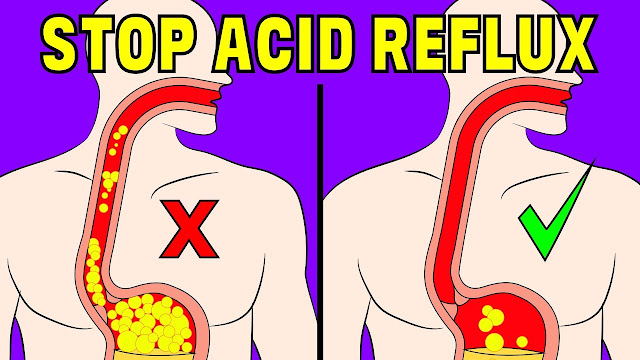12 Side Effects of Birth Control Pills

One of the most often used methods of contraception to avoid unintended pregnancies is birth control pills. They work well and are generally safe.
Your body might need some time to adjust to them, though. This is due to the fact that oral contraceptives typically contain synthetic hormones that disrupt the body's natural processes.
Your hormonal balance may be upset when you first start taking this medicine, which could result in some negative side effects. However, after a few weeks or months of consistent use, your body will adjust to it, your hormones will regulate, and the adverse effects will go away on their own. When you stop taking the drug, the same thing occurs.
Adverse Effects Of Birth Control Pills
Here are the most prevalent side effects of birth control tablets.
1. Spotting between periods
Estrogen and progestin are female hormones that regulate uterine and ovarian function. Birth control tablets contain trace doses of synthetic estrogen and progestin, which block the activities of natural estrogen and progestin found in the female body.
Regular use of this medicine modifies the functioning of the reproductive system in several ways to prevent conception. It has been linked to hormonal swings that induce thinning of the endometrium, or uterine lining, particularly in the first three months of use.
Your endometrium must be thick for the fertilized egg to connect properly and result in a successful pregnancy, but birth control pills prevent this from happening.
When an egg is not fertilized by a sperm, the body naturally loses the endometrium at the end of the monthly menstrual cycle. The destroyed uterine lining is removed from the body through monthly bleeding.
However, oral contraceptives cause a portion of the uterine lining to breakdown in the middle of the menstrual cycle, resulting in light bleeding or spotting between periods. Nearly half of all pill users experience this type of spotting or premature bleeding, but it usually goes away after the third month of use, when your body adjusts to the new hormones.
2. Headaches
Cortisol is a steroid hormone produced by the adrenal glands that is involved in numerous bodily functions. It is primarily important for regulating your body's response to stress. This is why it is commonly known as the "stress hormone."
Oral contraceptive pills have been shown to boost cortisol levels in the body, making you more sensitive to stress and triggering headaches. Furthermore, birth control tablets may cause inflammation in the body, which can lead to headaches.
According to a 2005 study published in the American Journal of Obstetrics and Gynecology, approximately 10% of users have frequent headaches within the first month of taking the pill.
Fortunately, this is usually a transitory issue, since the headaches fade once the body adjusts to the new oral contraceptive.
3. Vaginal lubrication changes
The artificial estrogen found in birth control tablets binds to natural estrogen in the blood, rendering it ineffective for use. This helps to keep the body's estrogen levels stable.
So, taking a low-estrogen medication will mistakenly lower your overall estrogen levels. This decrease in estrogen might induce vaginal dryness.
Pills with a high estrogen content, on the other hand, tend to raise estrogen levels in the body, which may cause excessive vaginal discharge.
4. Bloating
Starting a new birth control tablet produces fluctuations in your sex hormone levels, which can result in water retention and bloating, particularly in the breast and hip area. Irritable bowel syndrome and other gastrointestinal tract diseases can worsen this side effect.
Many people mistake bloating for weight gain, but you will return to your regular size once you stop taking the pill or your body adjusts to it. The estrogen in these pills can cause your fat cells to enlarge, but they will not increase in quantity.
According to the American Journal of Obstetrics and Gynecology, the problem will likely improve on its own after six months of starting the medicine.
5. Reduced thyroid and testosterone levels
Oral contraception causes an increase in sex hormone-binding globulins (SHBG) and thyroxine-binding globulins. These proteins capture testosterone and thyroxine hormones and remove them from circulation.
Both of these hormones play important roles in biological functioning, therefore their absence is certain to have negative consequences.
Low thyroxine levels slow metabolism and make you more likely to gain weight. Furthermore, it can cause depression, constipation, skin dryness, memory loss, cognitive decline, and hair loss, among other things. Women with insufficient thyroid hormone are more likely to experience infertility and miscarriage.
In contrast, a lack of testosterone can cause muscle mass and sex drive to decrease.
Going off the pill may not reduce the increased levels of these proteins, which might result in chronic hormonal issues such as estrogen dominance.
6. Nausea
Some people have minor nausea upon starting a new oral contraceptive, but it subsides after a while as their body adjusts to the medicine.
To lessen the likelihood of this adverse effect, take the pill with meal or at bedtime. If nausea lasts for an extended period of time or becomes severe, get medical attention.
7. Breast tenderness
During the first few weeks after starting a new oral contraceptive pill, you may notice swelling or discomfort in your breasts. Limiting your caffeine and sodium intake, as well as wearing a supportive bra, may help relieve some of the discomfort.
This adverse effect typically resolves on its own as your body adjusts to the medicine, but seek medical attention if:
- You discover a breast lump.
- You get acute breast discomfort.
- The discomfort and tenderness linger more than a few weeks.
- Diabetes
- Blood clots in the veins
- Hypertension or other cardiovascular disorders
- Stroke in the past
- Breast cancer


%20(1).jpg)

%20(19).jpg)
%20(6).jpg)